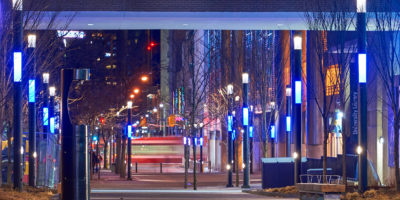By Andreas Maierhofer
Undercover agents could be roaming the halls of Ryerson because of increased powers given to the Canadian government’s spy agency.
Documents from the federal government in mid-September reveal a struggle between the Canadian Security Intelligence Services and the Canadian Association of University Teachers over the idea of the spy agency recruiting campus informants to keep an eye on certain students and groups.
The Liberal government sided with CSIS, granting it greater independence despite strong objections from students and teachers who feel that any CSIS presence on campus would have a negative impact on educational freedom.
Under new rules, CSIS is allowed to perform undercover operations, such as recruiting student informants, questioning students and keeping tabs on student groups.
Although CSIS was allowed to do these operations before, it had to go through the Solicitor General’s department for permission. It no longer needs this consent.
Ryerson students were shocked to learn there could be someone spying on them.
“I think this kind of activity is a violation of privacy and if it was going on at Ryerson I’d be really upset and always wondering if someone was watching me,” said Chris Siemicki, a first-year business administration student.
But CSIS spokesman Dan Lambert said the agency hasn’t gained much power.
“Under the current conditions, we are only allowed to do background checks on individuals and groups by asking people about them,” Lambert said. “But if we want to do a formal investigation on a person or group we have to seek permission from the Solicitor’s office. Asking students to help us in an investigation would only occur in very extreme and isolated cases.
CSIS’ presence on any given campus occurs if it feels there’s a real threat of an extremist group. Its web site says groups such as the Irish Republican Army, the Tamil Tigers and Shiite Islamic are recruiting students in Canadian post-secondary institutions.
“Because of certain incidents and information we believe that such groups are operation throughout university campuses particularly in Toronto and Vancouver,” Lambert said.
However, some students aren’t convinced of the danger.
“I’ve been coming here for four years now and I’ve never heard of these groups,” aerospace engineering graduate Paul Gill said. “It seems to me that [CSIS] is just looking for trouble.”
Gill, who also works as a security guard at Oakham House, said he isn’t concerned about extremist groups endangering students.
“I feel pretty safe here all the time,” he said. “It’s a good place to come to school for a lot of people from a lot of different cultures who seem to get along well. We don’t need a watchdog.”
Janet Mays, director of campus security, harassment and safety services, said students who have concerns about safety should approach Ryerson security, not organizations like CSIS.
“If students have any problems they can come to us and we’ll take the necessary actions,” she said. “To have an external group like CSIS calwing around campus can only harm us and create a lot of negative opinions.”
Despite all the opposition over potential CSIS’ presence on campus, Lambert says it’s crucial to monitor higher learning.
“We feel that there is an increasing amount of dangerous individuals on Canadian university campuses,” he said. “Dangerous groups often originate and get their foothold at these institutions. So we are doing everything to stop them.”










Leave a Reply